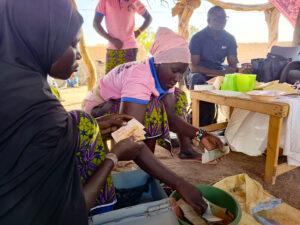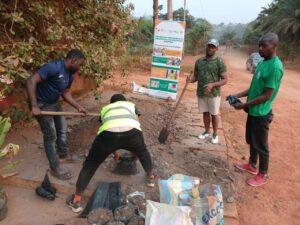Land has always been the object of much covetousness. It is the substrate for numerous activities enabling the socio-economic development of people (the State as a legal entity and the population/individual as a natural person). A distinction is generally made between urban and rural domains, each governed by its own laws and rules.
However, in Côte d’Ivoire, as in other developing countries, urban development (urbanization) is taking place at the expense of rural development (agriculture, etc.). This has implications for the preservation of the land rights of all stakeholders in an environment of shifting and confronting domains defined within the framework of land governance.
Indeed, the exponential urbanization of certain areas in Côte d’Ivoire, such as the Abidjan district, seems uncontrolled and uncontrollable. This leads to many problems.
To shed light on this alarming reality, the 4th edition of the national conference on rural land tenure in Côte d’Ivoire, co-organized by Inades-Formation and the Laboratoire Juridique du Foncier de l’Université Alassane Ouattara de Bouaké (LAJFO UAO), focused on the theme : Rapid urbanization and rural land tenure: issues, challenges and solutions.
Experts, practitioners, agricultural promoters and village chiefs shared their knowledge and experience in citizen debates on the problems associated with galloping urbanization and the risks it entails. Over 200 people took part, including representatives of public authorities such as the Prime Minister’s Office, the Ministry of State, Ministry of Agriculture and Food Production; the Ministry of Construction and Urban Planning; the Ministry of the Interior and Security (DGAT); the Ministry of Justice and Human Rights; the Ministry of the Budget and the State Portfolio (Land Conservation); the Rural Land Agency (AFOR); the representative of the Mayor of the Commune of Cocody, etc.
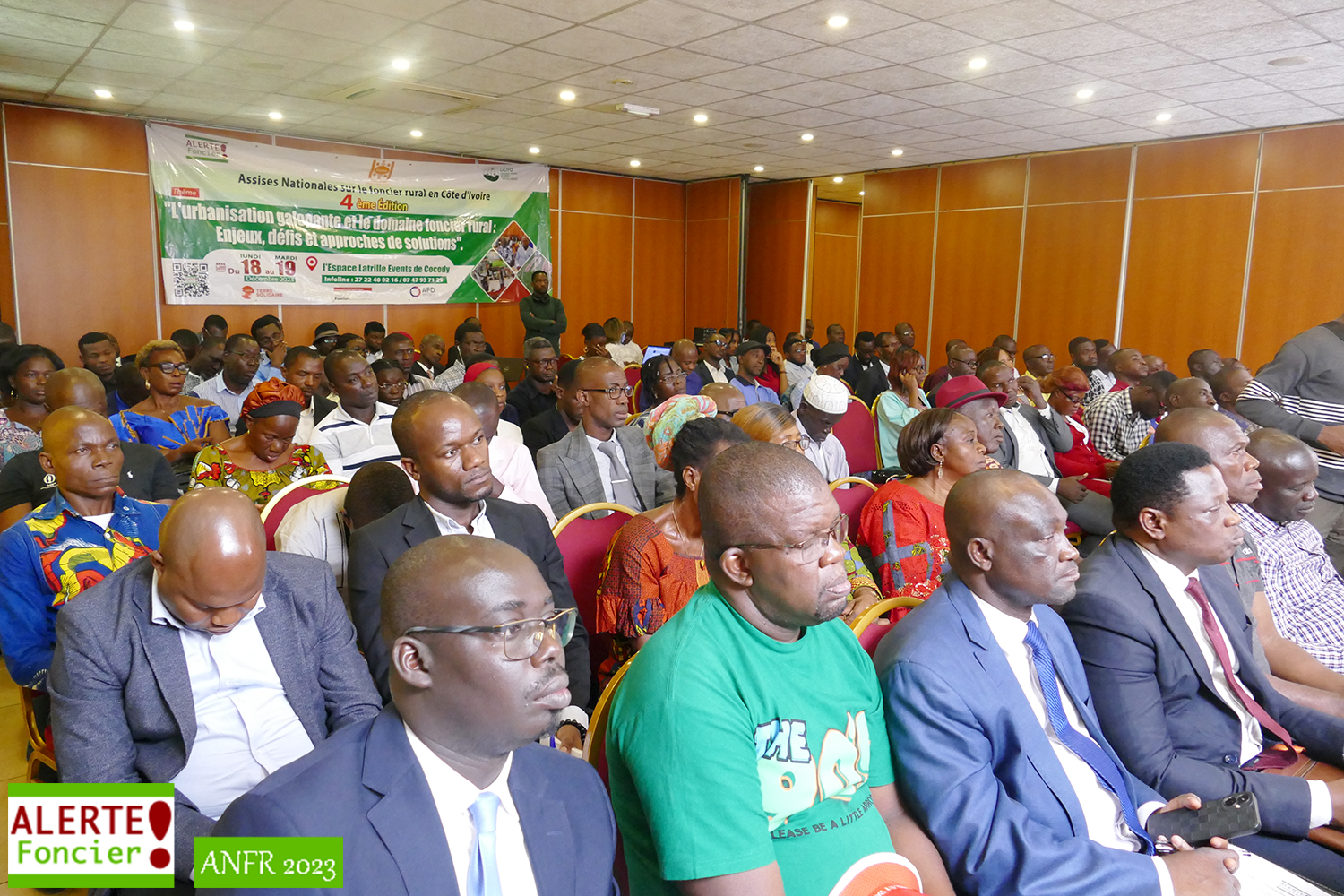
In his opening address, Mr. Sena ADESSOU, Secretary General of Inades-Formation and President of Alerte Foncier, noted that “there is an antagonism between urban and rural land tenure. It is important to find a solution to these major issues. It requires vigorous action on the part of the authorities”.
The event featured five panels, preceded by an inaugural presentation and testimonials from affected villages.
The facts are clear:
villages are being absorbed by cities, and with them agricultural land, threatening the country’s food security and trampling on the land rights of customary owners.
The theme of the inaugural presentation was ” Rapid urbanization : definitional approaches, issues and challenges for the sustainable development of our countries/Côte d’ivoire”. Moderated by Mr. DAGROU Théodore, senior magistrate, rural land expert, President of Chamber at the Côte d’Ivoire Court of Cassation, it enabled participants to familiarize themselves with the concepts related to the theme and to define the issues at stake.
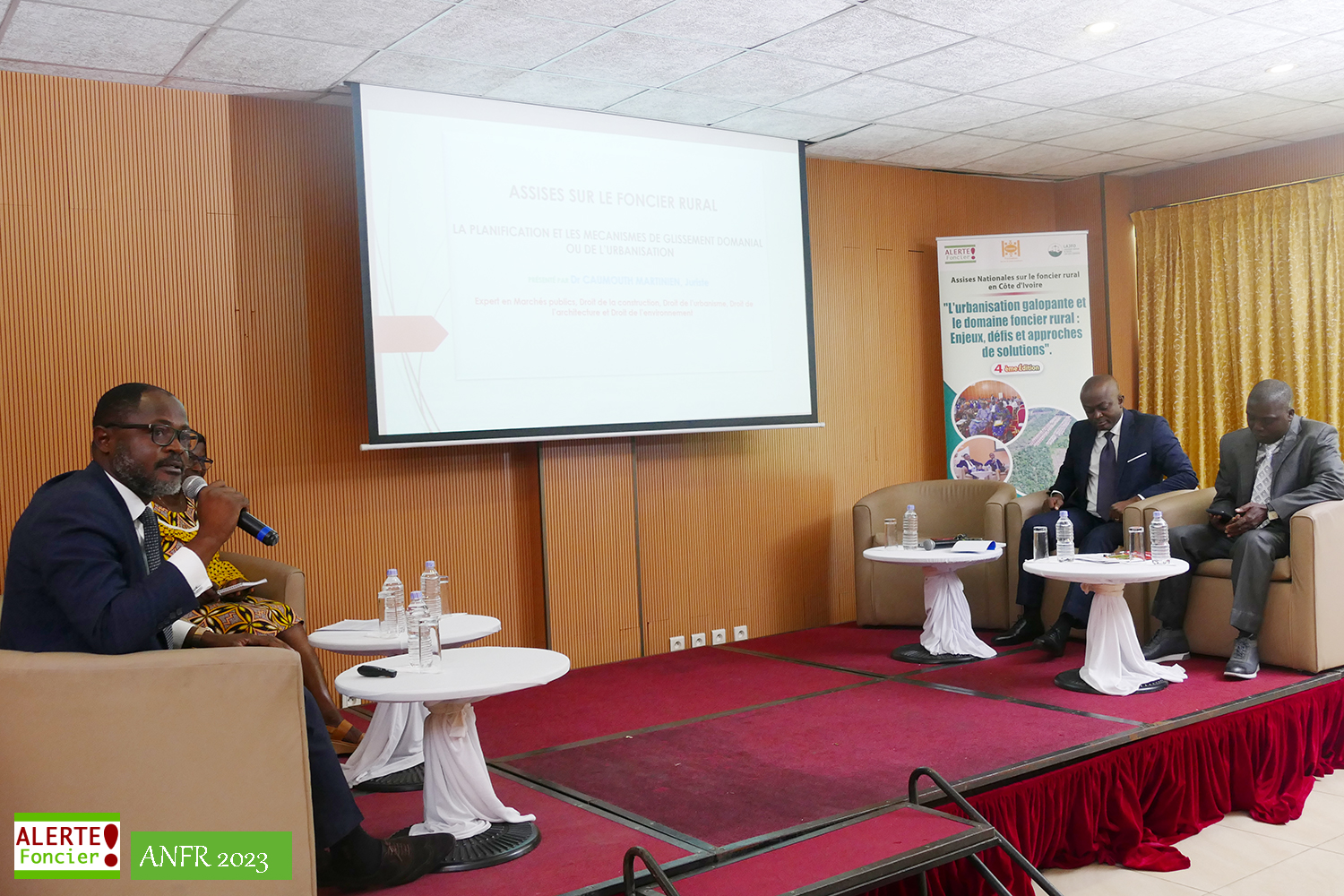
The five panels that followed dealt respectively with :
- Public policy responses to galloping urbanization and its impact on rural land;
- Rapid urbanization and land tenure security in rural areas ;
- Urbanization: mechanisms, players, socio-spatial dynamics and economic growth ;
- Rampant urbanization and the challenges of agricultural, environmental and food security development in Côte d’Ivoire;
- Rampant urbanization: frameworks and possible solutions.
From these panels, we can see that the urban domain is expanding rapidly and unchecked, causing the destruction of agricultural land and transforming villages into urban or peri-urban villages unable to produce food and contribute to urban food security.
Several recommendations were made to the various government and civil society players, including :
- Organize a General Assembly to save the suburbs, to save farmers
- Controlling urbanization in Côte d’Ivoire by taking into account agricultural reserves. Prohibit subdivisions in peri-urban and rural areas with high agricultural potential, such as lowlands, etc.
- Develop and protect existing water bodies
- Advocate building the city on top of the city, or vertical or high-rise construction,
- Control the growth of cities by inserting the necessary “green belt”, which consists of surrounding a built-up area with an undeveloped zone,
- Set up a mechanism to regulate subdivisions initiated by rural populations in partnership with topographers and developers.
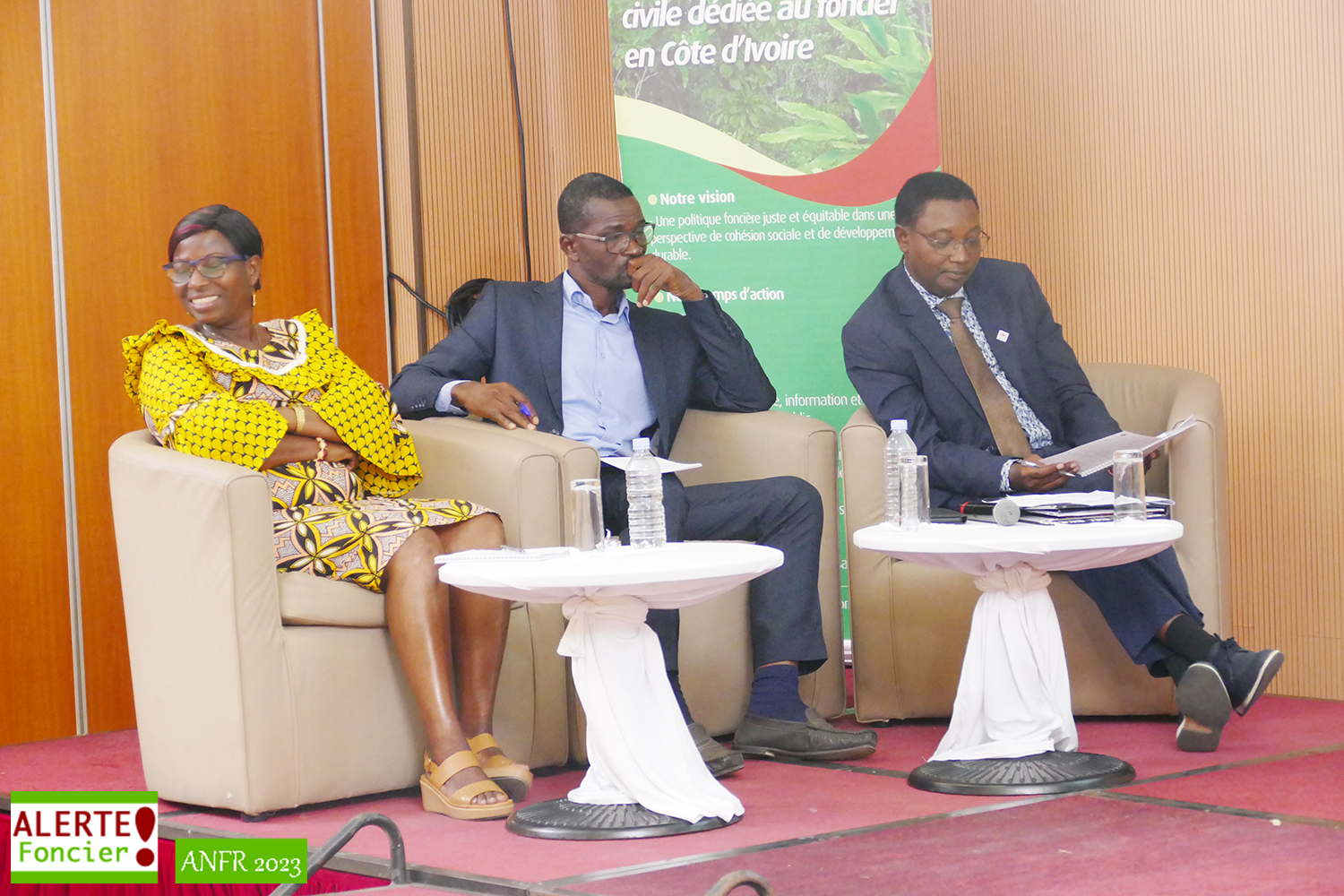
Organizers and participants welcomed the event as an opportunity to alert public authorities to the need for better control and supervision of urbanization.
The recommendations will be shared with the authorities and the general public.
Read the report on the 4th National Conference on Rural Land Tenure in Côte d’Ivoire


